
Events from the year 1873 in Canada.

Marshall Jewell was a manufacturer, pioneer telegrapher, telephone entrepreneur, world traveler, and political figure who served as 44th and 46th Governor of Connecticut, the US Minister to Russia, the 25th United States Postmaster General, and Republican Party National Chairman. Jewell, distinguished for his fine "china" skin, grey eyes, and white eyebrows, was popularly known as the "Porcelain Man". As Postmaster General, Jewell made reforms and was intent on cleaning up the Postal Service from internal corruption and profiteering. Postmaster Jewell helped Secretary of the Treasury Benjamin H. Bristow shut down and prosecute the Whiskey Ring. President Grant, however, became suspicious of Jewell's loyalty after Jewell fired a Boston postmaster over non payment of a surety bond and asked for his resignation.
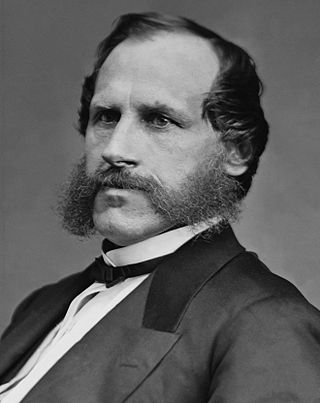
George Henry Williams was an American judge and politician. He served as chief justice of the Oregon Supreme Court, was the 32nd Attorney General of the United States, and was elected Oregon's U.S. senator, and served one term. Williams, as U.S. senator, authored and supported legislation that allowed the U.S. military to be deployed in Reconstruction of the southern states to allow for an orderly process of re-admittance into the United States. Williams was the first presidential Cabinet member to be appointed from the Pacific Coast. As attorney general under President Ulysses S. Grant, Williams continued the prosecutions that shut down the Ku Klux Klan. He had to contend with controversial election disputes in Reconstructed southern states. President Grant and Williams legally recognized P. B. S. Pinchback as the first African American state governor. Williams ruled that the Virginius, a gun-running ship delivering men and munitions to Cuban revolutionaries, which was captured by Spain during the Virginius Affair, did not have the right to bear the U.S. flag. However, he also argued that Spain did not have the right to execute American crew members. Nominated for Supreme Court Chief Justice by President Grant, Williams failed to be confirmed by the U.S. Senate primarily due to Williams's opposition to U.S. Attorney A. C. Gibbs, his former law partner, who refused to stop investigating Republican fraud in the special congressional election that resulted in a victory for Democrat James Nesmith.

The 2nd Canadian Parliament was in session from March 5, 1873, until January 2, 1874. The membership was set by the 1872 federal election from July 20 to October 12, 1872, and it changed only somewhat due to resignations and by-elections until it was dissolved prior to the 1874 election. Among the by-elections were the first election of PEI MPs, PEI joining Confederation in 1873.

Harrison Ludington was an American businessman, Republican politician, and Wisconsin pioneer. He served as the 13th governor of Wisconsin and was the 20th and 22nd mayor of Milwaukee, Wisconsin.
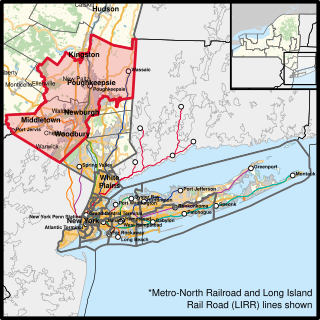
New York's 18th congressional district is a congressional district for the United States House of Representatives that contains the northern suburbs and exurbs of New York City. It is currently represented by Democrat Pat Ryan.
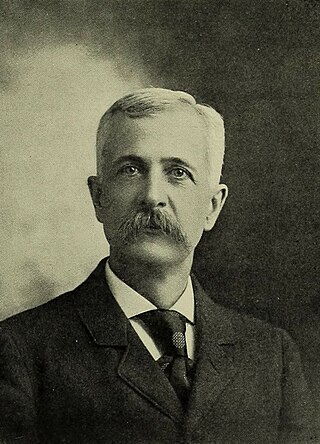
Theodore E. Hancock was an American lawyer and politician. He was New York's Attorney General from 1894 to 1898.
Lyttelton is a former New Zealand parliamentary electorate. It existed from 1853 to 1890, and again from 1893 to 1996, when it was replaced by the Banks Peninsula electorate.

The 1873 New York state election was held on November 4, 1873, to elect the Secretary of State, the State Comptroller, the Attorney General, the State Treasurer, the State Engineer, a Canal Commissioner and an Inspector of State Prisons, as well as all members of the New York State Assembly and the New York State Senate. Besides, the voters were asked if the judges of the New York Court of Appeals, the New York Supreme Court, and the county and city courts, shall be elected or appointed; the electorate decided to maintain the elective system.

The 1873 United States Senate election in New York was held on January 21, 1873, by the New York State Legislature to elect a U.S. Senator to represent the State of New York in the United States Senate.
Members of the New South Wales Legislative Assembly who served in the seventh parliament of New South Wales held their seats from 1872 to 1874. The 182 election was held between 13 February and 28 March 1872 with parliament first meeting on 30 April 1872. There were 72 members elected for 52 single member electorates, 6 two member electorates and 2 four member electorates. The maximum term of this parliament was 3 years. However the assembly was dissolved after 32 months. Henry Parkes was the premier for the duration of the parliament. The Speaker was William Arnold.

The 1872–73 United States Senate elections were held on various dates in various states, coinciding with President Ulysses S. Grant's re-election. As these U.S. Senate elections were prior to the ratification of the Seventeenth Amendment in 1913, senators were chosen by state legislatures. Senators were elected over a wide range of time throughout 1872 and 1873, and a seat may have been filled months late or remained vacant due to legislative deadlock. In these elections, terms were up for the senators in Class 3.

The 1874–75 United States Senate elections were held on various dates in various states. As these U.S. Senate elections were prior to the ratification of the Seventeenth Amendment in 1913, senators were chosen by state legislatures. Senators were elected over a wide range of time throughout 1874 and 1875, and a seat may have been filled months late or remained vacant due to legislative deadlock. In these elections, terms were up for the senators in Class 1.

The 1878–79 United States Senate elections were held on various dates in various states. As these U.S. Senate elections were prior to the ratification of the Seventeenth Amendment in 1913, senators were chosen by state legislatures. Senators were elected over a wide range of time throughout 1878 and 1879, and a seat may have been filled months late or remained vacant due to legislative deadlock. In these elections, terms were up for the senators in Class 3.

The 1886–87 United States Senate elections were held on various dates in various states. As these U.S. Senate elections were prior to the ratification of the Seventeenth Amendment in 1913, senators were chosen by state legislatures. Senators were elected over a wide range of time throughout 1886 and 1887, and a seat may have been filled months late or remained vacant due to legislative deadlock. In these elections, terms were up for the senators in Class 1.

The 1866–67 United States Senate elections were held on various dates in various states. As these U.S. Senate elections were prior to the ratification of the Seventeenth Amendment in 1913, senators were chosen by state legislatures. Senators were elected over a wide range of time throughout 1866 and 1867, and a seat may have been filled months late or remained vacant due to legislative deadlock. In these elections, terms were up for the senators in Class 3.
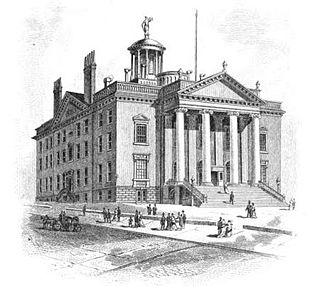
The 96th New York State Legislature, consisting of the New York State Senate and the New York State Assembly, met from January 7 to May 30, 1873, during the first year of John A. Dix's governorship, in Albany.
The 1873 United States Senate special election in Massachusetts was held in March 1873 to fill the vacancy left by Senator Henry Wilson, who resigned to become Vice President of the United States. George S. Boutwell won the election.
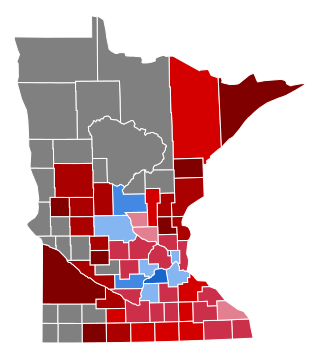
The 1868 United States presidential election in Minnesota took place on November 3, 1868, as part of the 1868 United States presidential election. State voters chose four representatives, or electors, to the Electoral College, who voted for president and vice president.